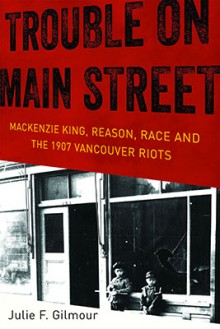MACKENZIE KING REASON RACE AND THE 1907 VANCOUVER RIOTS
The weather on the Labour Day weekend of 1907 was hot and tempers were short. British Columbians had always been sensitive to Asian immigration and had become increasingly fearful over the summer. More Japanese immigrants were coming to B.C. and rumours smouldered of massive labour contracts for the projected Grand Trunk Pacific Railway. Like the citizens of Seattle and San Francisco, the residents of Vancouver had established a bipartisan Asiatic Exclusion League aimed at Japanese, Chinese, and South Asian immigrants in order to protect “White Canada.” The league had widespread support among trade union organizations and churches, and so a parade during the Labour Day weekend was scheduled. The result was a violent riot that drew the world’s attention to Vancouver, to Canadian immigration policy, and to Britain’s 1902 alliance with the Japanese. Historian Julie F. Gilmour traces the impact of these events on the life and work of future prime minister W.L. Mackenzie King, and on Canada’s relationships with Britain, the United States, China, Japan, and India. King’s involvement with the commissions set up to evaluate the damages incurred during the riots led to his interest in opium suppression and immigration control, and clarified his own sense of Canada’s role in the empire. Trouble on Main Street portrays a nation, and a time, at once relatively recent and shockingly unrecognizable. Over a century later, the links between local pressures, policy, and international events provide insight into current debates on terror, immigration, and Canadian security.
Julie F. Gilmour received her Ph.D. in Canadian history from the University of Toronto. Her thesis, “The Kind of People Canada Wants: Canada and the Displaced Persons, 1943–53”, was a study of the movement of “displaced persons” to Canada after World War II. Gilmour is currently Assistant Professor, Trinity College, University of Toronto.
